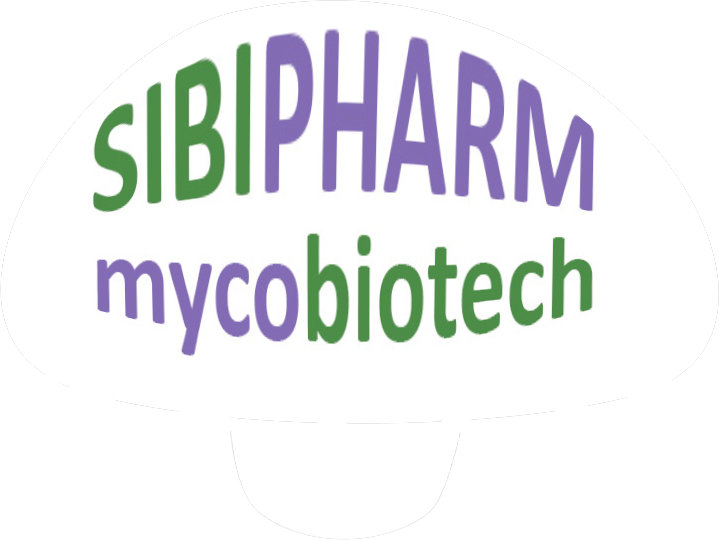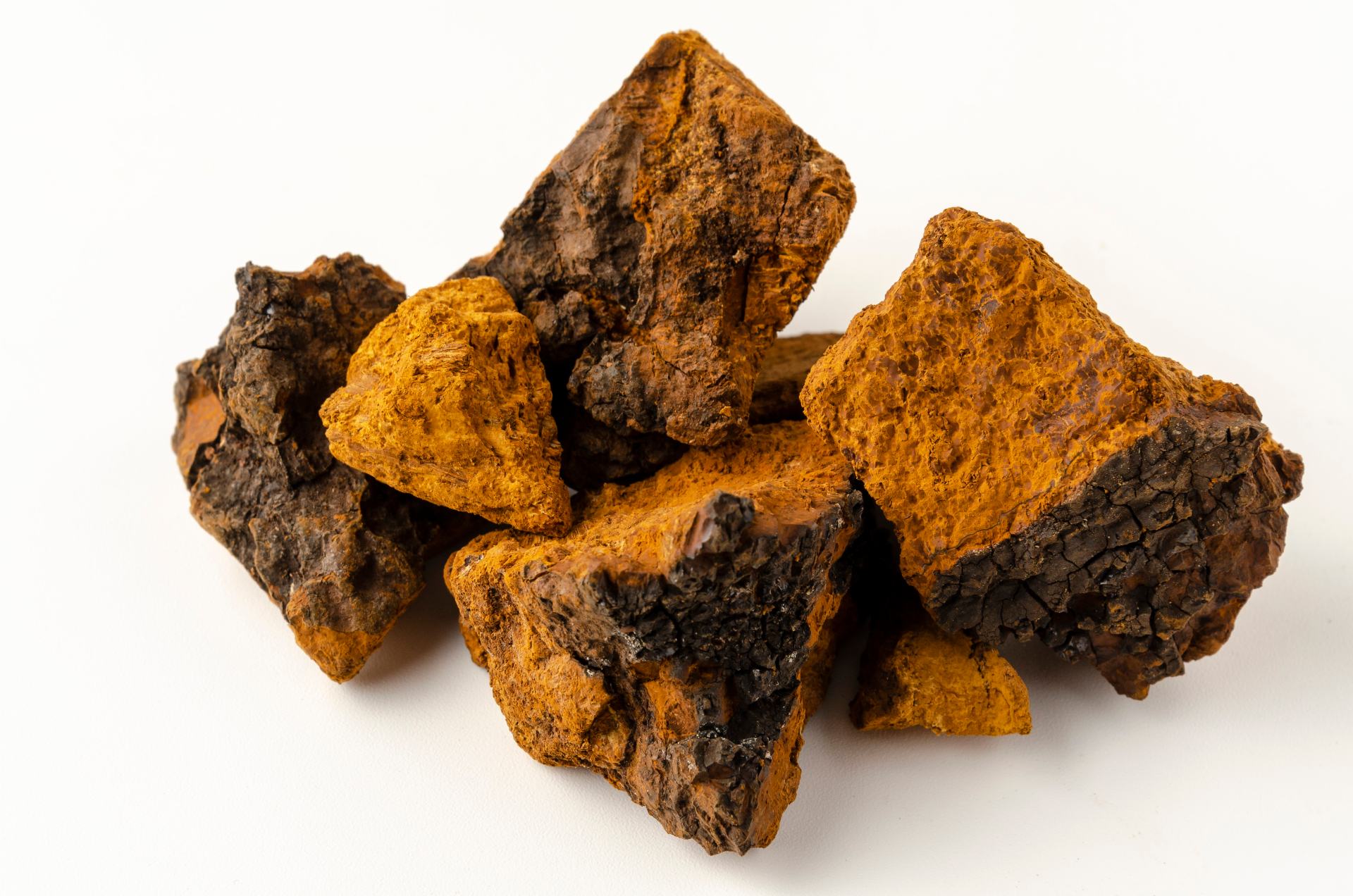Chaga (Inonotus obliquus) is a parasitic fungus that grows on trees, most often birch trees, in northern forests. This fungus is known for its unique healing properties, among which melanins play a special role. Studies have shown that chaga melanins can not only protect against the effects of ultraviolet (UV) radiation, but also potentially prevent the development of skin cancer.
Melanins: biological functions
Melanins are a group of natural pigments present in the body of humans, animals, plants and microorganisms. They play a key role in protecting against the harmful effects of UV radiation by absorbing and scattering UV rays, thereby preventing damage to cellular DNA. In the human body, melanins are present in the skin, hair and eyes, and also perform important antioxidant and photoprotective functions.
In mushrooms, including chaga, melanins have similar functions. These pigments in the mushrooms play a role both in protecting the mushrooms themselves from external aggressive factors and in improving their resistance to damage.
Chaga melanins and UV protection
One of the most important factors causing skin damage and contributing to the development of skin cancer is ultraviolet radiation. It leads to oxidative stress, DNA damage and weakening of the immune system, which contributes to the development of malignant neoplasms.
Chaga melanins are able to absorb a wide range of UV rays (including UVA and UVB), which makes them a powerful natural photoprotective agent. The mechanism of action of melanins is based on their ability to effectively absorb high-energy photons of UV radiation and scatter them, preventing damage to cellular structures. In vitro and in vivo experiments have shown that chaga melanins reduce the degree of damage to skin cells under the influence of ultraviolet radiation, protecting against photoaging and possible mutations.
In addition, melanins have antioxidant properties, helping to neutralize free radicals that are formed under the influence of UV radiation and provoke damage to cell membranes and DNA. This is an additional line of defense against the effects of UV stress, including photocarcinogenesis.
Chaga melanins as a means of preventing skin cancer
Skin cancer, especially melanoma, is one of the most aggressive forms of malignant neoplasms, which is directly related to exposure to solar UV radiation. The mechanism of skin cancer development includes the accumulation of mutations in skin cells under the influence of UV rays, which can lead to uncontrolled growth and transformation of cells into malignant ones.
Chaga melanins, due to their photoprotective and antioxidant properties, can act as a means of preventing skin cancer. Studies on models have shown that chaga extracts rich in melanins are able to inhibit processes associated with the development of cancer cells, including suppressing the proliferation of melanocytes – cells that are involved in the formation of pigment and can transform into melanoma. In addition, chaga melanins have the ability to stabilize the immune system, which is also important for fighting cancer cells. Strengthening the immune defense helps to recognize and destroy atypical cells in a timely manner, preventing their further development.
Potential for use in medicine and cosmetology
Considering the unique properties of chaga melanins, they can be considered as a promising tool for developing new means of protection from sunlight and prevention of skin cancer. In the cosmetics industry, chaga melanins can become the basis for creating natural sunscreens and skin care products that not only protect against UV rays, but also have a pronounced antioxidant and rejuvenating effect.
Also a promising direction is the use of chaga extracts as an adjuvant in the treatment of skin diseases associated with exposure to solar radiation, such as actinic keratosis and basal cell carcinoma. These diseases often develop in people with increased sensitivity to the sun, and chaga melanins can play a role in their prevention and treatment.
The use of preparations based on chaga extract or cryo powder can protect the skin on sunny summer days. It is recommended to take chaga on a regular basis for residents of hot sunny countries to ensure the prevention of skin diseases.
Conclusion
The melanins contained in chaga are powerful natural protectors against ultraviolet radiation, and also have antioxidant and immunostimulating properties, which makes them a promising means for the prevention of skin cancer. It is important to note that further research into the mechanism of action of chaga melanins and their use in medicine and cosmetology may open up new opportunities for creating effective means of protecting the skin from the sun and cancer.
Author: Dr. Petr Mělník, doctor of integral medicine






